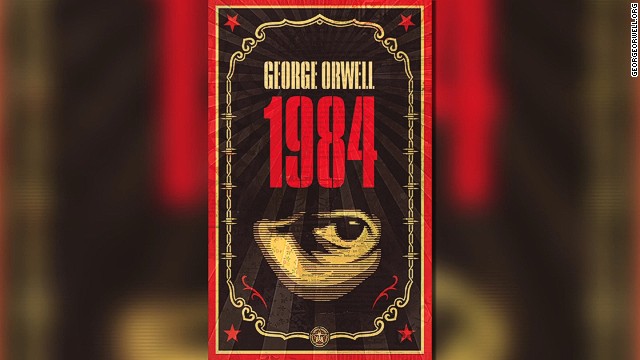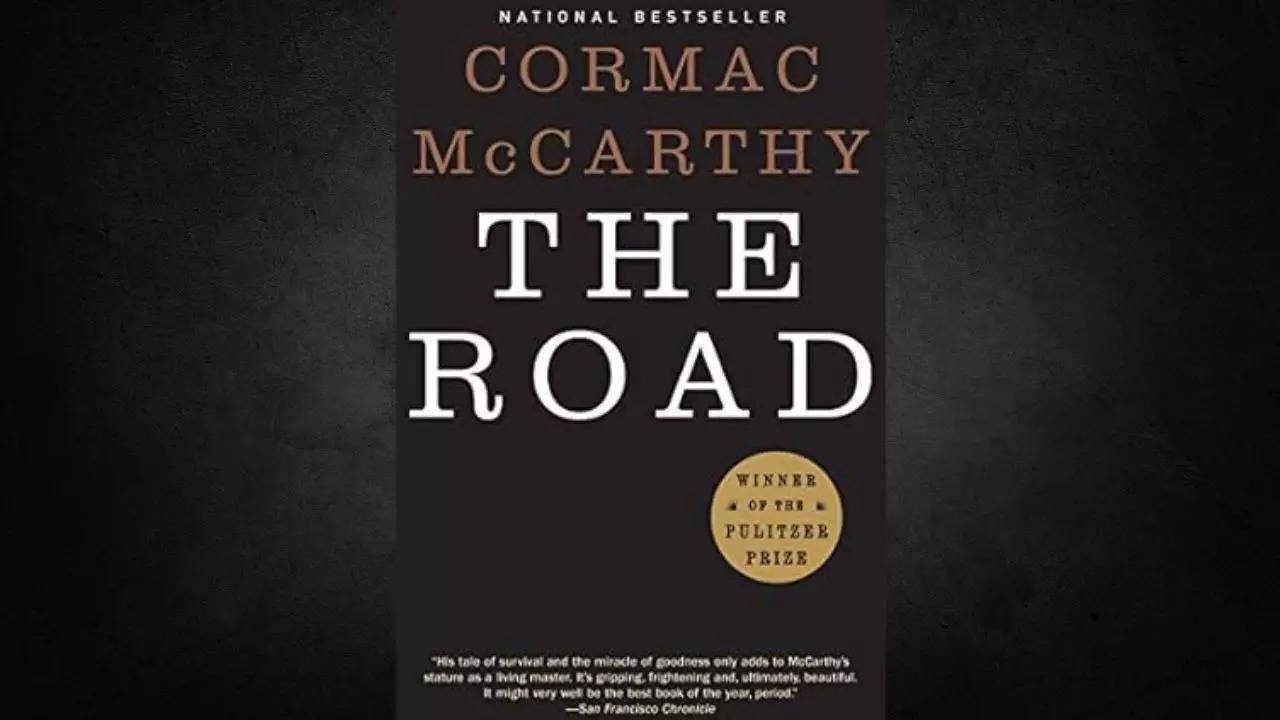Table of Contents
ToggleIntroduction
10 Timeless Literary Works You Must Read Before 30 Literature has the capacity to influence our viewpoints, test our assumptions, and evoke strong feelings in us. A solid foundation in reading can act as a compass for the rest of our lives, assisting us in navigating the outside world as well as our inner thoughts.
Exploring the most significant and enduring literary works can provide anyone under 30 with priceless insights into the complexity of the human condition.
Reading the correct books before the age of thirty can change how you view relationships, society, and yourself in addition to enhancing your intelligence. The following literary masterpieces offer provocative stories that are timeless in addition to defining their respective genres.
These books, which range from contemporary masterpieces that illustrate the complexities of human relationships to classic novels that question social standards, are indispensable for any reader who wishes to broaden their perspective.
1. “1984” by George Orwell (1949)
No list of essential literary works would be complete without George Orwell’s 1984, a dystopian novel that offers a chilling portrayal of a totalitarian state. Orwell’s exploration of surveillance, government propaganda, and the loss of individuality remains relevant today, especially in an age where questions about privacy, freedom, and the control of information dominate global discourse.
Read More
10 Timeless Literary Works You Must Read Before 30 In 1984, readers follow Winston Smith, a man who begins to question the oppressive regime of Big Brother. Orwell’s use of language, psychological manipulation, and societal critique is a masterclass in the power of words and how they can shape reality.
The novel’s portrayal of a society that monitors and controls its citizens is still incredibly prescient in light of modern surveillance technologies and discussions about privacy rights.
Symbolism and Themes:
- The corrupting nature of totalitarianism
- The manipulation of language and truth
- The struggle for individual freedom in a conformist society

2. “To Kill a Mockingbird” by Harper Lee (1960)
Harper Lee’s To Kill a Mockingbird is a poignant exploration of race, justice, and morality in the American South during the 1930s. Narrated by Scout Finch, the story follows her coming-of-age as her father, Atticus Finch, defends an innocent African American man, Tom Robinson, accused of raping a white woman. The novel not only addresses the racial prejudices of the time but also delves deeply into themes of empathy, integrity, and social justice.
The novel is a powerful reminder of the importance of standing up for what is right, even in the face of adversity. Atticus Finch’s unflinching moral compass serves as an inspiration to readers, particularly young adults, to think critically about their societal roles and responsibilities.
Symbolism and Themes:
- The loss of innocence
- The injustice of racial inequality
- Empathy and understanding
3. “The Great Gatsby” by F. Scott Fitzgerald (1925)
10 Timeless Literary Works You Must Read Before 30 F. Scott Fitzgerald’s The Great Gatsby is a literary exploration of the American Dream and the disillusionment that often accompanies its pursuit. Set during the Jazz Age, the novel focuses on the life of Jay Gatsby, a mysterious millionaire whose obsession with wealth, status, and a lost love leads to his tragic downfall.
Fitzgerald’s sharp critique of the materialism and superficiality of the Roaring Twenties reveals the emptiness that often accompanies the pursuit of shallow ideals. The Great Gatsby serves as a cautionary tale about the dangers of unrelenting ambition, the fleeting nature of love, and the impossibility of recapturing the past.
Symbolism and Themes:
- The illusion of the American Dream
- Love, obsession, and loss
- The divide between social classes
4. “The Catcher in the Rye” by J.D. Salinger (1951)
J.D. Salinger’s The Catcher in the Rye is a classic coming-of-age novel that chronicles the experiences of Holden Caulfield, a disillusioned teenager struggling with depression and a sense of alienation. Through his sharp observations and often cynical lens, Holden critiques the adult world while grappling with his own transition into adulthood.
10 Timeless Literary Works You Must Read Before 30 The novel’s themes of innocence, isolation, and the loss of youth resonate deeply with readers in their late teens and early twenties. It offers an unfiltered look into the tumultuous mind of a young adult, making it an important read for anyone navigating the transition between adolescence and adulthood.
Symbolism and Themes:
- The tension between innocence and adulthood
- Mental health and emotional isolation
- The search for authenticity in a superficial world
5. “One Hundred Years of Solitude” by Gabriel García Márquez (1967)
Regarded as one of the most significant works in Latin American literature, One Hundred Years of Solitude by Gabriel García Márquez is a sweeping narrative that blends magic realism with the history of Colombia. The novel follows the Buendía family across multiple generations, intertwining personal stories with the political upheaval and social change that characterize the 20th century.
The novel’s intricate structure and magical elements create a world that is both fantastical and deeply human. Márquez’s use of magic realism allows readers to explore complex emotional landscapes, bringing together themes of love, death, solitude, and fate. One Hundred Years of Solitude is a must-read for anyone seeking to understand the deep cultural and historical forces that shape human lives.
Symbolism and Themes:
- The cyclical nature of history
- The tension between reality and fantasy
- Love, solitude, and fate
6. “Pride and Prejudice” by Jane Austen (1813)
10 Timeless Literary Works You Must Read Before 30 A timeless classic in the realm of romance and social commentary, Pride and Prejudice by Jane Austen is a novel about the intricacies of love, marriage, and societal expectations. Set in the early 19th century, it follows Elizabeth Bennet, a smart and independent young woman, and her relationship with the brooding, wealthy Mr. Darcy.
At its core, Pride and Prejudice challenges rigid social norms, offering a critique of class structure while exploring themes of individual agency and moral growth. Austen’s biting wit and insightful commentary on human nature make this novel as relevant today as it was when it was first published.
Symbolism and Themes:
- The critique of social class and marriage
- Individual growth and moral development
- The roles of love and pride in relationships
7. “Crime and Punishment” by Fyodor Dostoevsky (1866)
10 Timeless Literary Works You Must Read Before 30 Dostoevsky’s Crime and Punishment is one of the seminal works in the psychological novel tradition. It follows Rodion Raskolnikov, a young student who commits a murder, believing that he is justified by a higher moral calling. The novel delves deeply into Raskolnikov’s tortured psyche, exploring themes of guilt, redemption, and the consequences of crime.
Dostoevsky’s exploration of moral and ethical dilemmas is as relevant today as it was in 19th-century Russia, offering insights into the human condition and the complexities of moral decision-making. Crime and Punishment is essential reading for anyone interested in understanding the depths of the human mind and the implications of moral choices.
Symbolism and Themes:
- The psychological effects of guilt
- The moral complexities of crime and punishment
- Redemption and spiritual awakening
8. “Beloved” by Toni Morrison (1987)
Toni Morrison’s Beloved is a powerful exploration of slavery, memory, and identity. Set after the American Civil War, it tells the story of Sethe, an escaped slave who is haunted by the ghost of her deceased daughter. The novel explores the trauma of slavery and its lasting effects on individuals and communities.
Morrison’s use of symbolism—particularly in the figure of Beloved, the ghostly daughter—creates a haunting and emotionally charged narrative. Beloved is a novel that challenges readers to confront difficult aspects of history and their own cultural assumptions, making it an important work for understanding the complexities of race, trauma, and identity.
Symbolism and Themes:
- The lasting effects of slavery and trauma
- Memory, guilt, and reconciliation
- The struggle for identity and self-determination
9. “The Odyssey” by Homer (8th Century BCE)
10 Timeless Literary Works You Must Read Before 30 As one of the foundational works of Western literature, The Odyssey by Homer tells the story of Odysseus and his long journey home after the Trojan War. Through this epic, Homer explores the themes of perseverance, loyalty, and the human desire for adventure and knowledge.
Read More
The Odyssey is not only a story about the hero’s journey but also an exploration of human nature, society, and the divine. It is a book that has influenced countless works of literature and continues to resonate with readers across centuries. Its timeless themes of the trials and tribulations of life make it a must-read for anyone seeking to understand the foundations of storytelling and mythology.
Symbolism and Themes:
- The hero’s journey and personal growth
- Loyalty, perseverance, and the pursuit of knowledge
- The interaction between humans and the divine
10. “The Road” by Cormac McCarthy (2006)
10 Timeless Literary Works You Must Read Before 30 Cormac McCarthy’s The Road is a haunting and stripped-down narrative set in a post-apocalyptic world. It follows a father and son as they journey through a desolate landscape, struggling to survive and maintain their humanity in the face of overwhelming darkness.
While The Road is set in an imagined future, its exploration of love, survival, and the human condition is deeply universal. The novel challenges readers to reflect on what it means to live a moral life in a world that seems devoid of hope. Its stark prose and intense emotional power make it a must-read for anyone grappling with the fragility of life and human connection.
Symbolism and Themes:
- Survival and the human spirit
- Father-son relationships
- The nature of good and evil in a collapsed world

Conclusion
10 Timeless Literary Works You Must Read Before 30 The ten novels mentioned above are not just significant literary masterpieces; they are also resources for philosophical contemplation, cultural awareness, and personal development. Readers of all ages will continue to find resonance in these works, each of which presents a distinct viewpoint on the human condition.
In addition to enhancing your intelligence, reading these classic works will expose you to a lifetime of intellectual inquiry, empathy, and critical thinking. So dig right in and let these books to influence your worldview and viewpoint.
Read More
FAQ
1. Why are these books important to read before 30?
These books explore universal themes like love, morality, identity, and society—topics that are often most relevant during the formative years of young adulthood. Reading them before 30 allows you to develop a deeper understanding of the world and your place within it.
2. How do these books connect to today’s world?
Though many of these books were written in different historical contexts, their themes are timeless and universal. Issues like social justice, the pursuit of freedom, and the complexities of human nature continue to shape modern conversations.
3. Do I need to be a literature expert to understand these works?
No, these books are accessible to anyone with an interest in literature. However, approaching them with an open mind and a willingness to analyze the deeper meanings of symbols and themes will enrich your experience.
4. Can I start with any of these books, or should I follow a specific order?
While there is no set order, some readers may find it helpful to start with easier or more relatable books, like Pride and Prejudice or The Great Gatsby, before tackling the more complex novels like Crime and Punishment or One Hundred Years of Solitude.
5. How can I best absorb the lessons from these books?
Take your time reading these books, and don’t hesitate to reflect on and discuss them with others. Many of these works have been analyzed for decades, so reading them with thoughtfulness and openness to interpretation will deepen your understanding.















